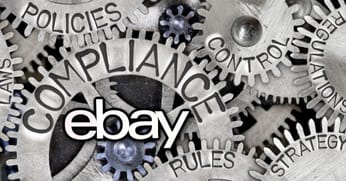Why Doesn't eBay Do More To Stop Car Scams?
It seems like eBay car scams have been around almost as long as the platform has existed, why doesn't eBay do more to curb this particular kind of fraud?
There are several variations on the scam, but a few common trends - most notably that the scammers often use compromised eBay accounts to advertise cars for sale that they don't really have and they attempt to get the buyer to make payment off the platform in some way (cash, gift cards, wire transfers etc.).


eBay CEO Jamie Iannone talks a lot about his vertical focus on high value buyers and his plans to bring "enthusiasts" to the platform. Well Jamie, there are many very dedicated car enthusiasts who've been trying to bring this problem to eBay's attention for years, with very little engagement or proactive assistance from eBay to address the problem.
There's a Facebook group called eBay Vehicle Scam Alerts with over 8,000 members doing nothing but sharing and reporting car scam listings, not to mention several Twitter accounts that have been reporting this problem for years as well.
Hey @AskeBay another hacked account that your systems don’t pick up. I’ve been doing this at least a year… pic.twitter.com/qL7HFKEUHI
— eBay classic car scams (@eBay_antiscam) September 12, 2021
Hey, @askebay,
— (((foxache (@foxacheUK) October 9, 2021
Your scamming fraudster has h*cked another account. Partstore20.
Seriously, are your systems unable to spot that when an unknown suddenly lists 1500 vehicles, IT IS A SCAM AND A FRAUD?
Do better, eBay. You're facilitating this scammer by making things easy. pic.twitter.com/0ygnbmtYqV
Aren't those exactly the kind of highly engaged enthusiasts eBay should be working with to "build trusted relationships" and "become the platform of choice" for buyers and sellers?
Beyond the harm done to any victims who may fall for the scam, there are serious concerns here about the overall safety and security of the entire platform - the accounts that are used to perpetrate the scam are often legitimate accounts that are hacked/compromised and taken over by the scammers, just like the massive triangulation fraud also being perpetrated on the site.
Just to be clear - the real account holders are likely victims in this scenario as well, even if they do not lose any money to the scam.
I did some digging into one particular variation that uses compromised accounts to list thousands of vehicles, all with a second photo that directs buyers to contact a gmail account to complete the sale.
The most obvious sign of the scam is of course that they often reuse the same pictures/titles & the second picture is always almost identical, with the exception that sometimes they will change the gmail address.
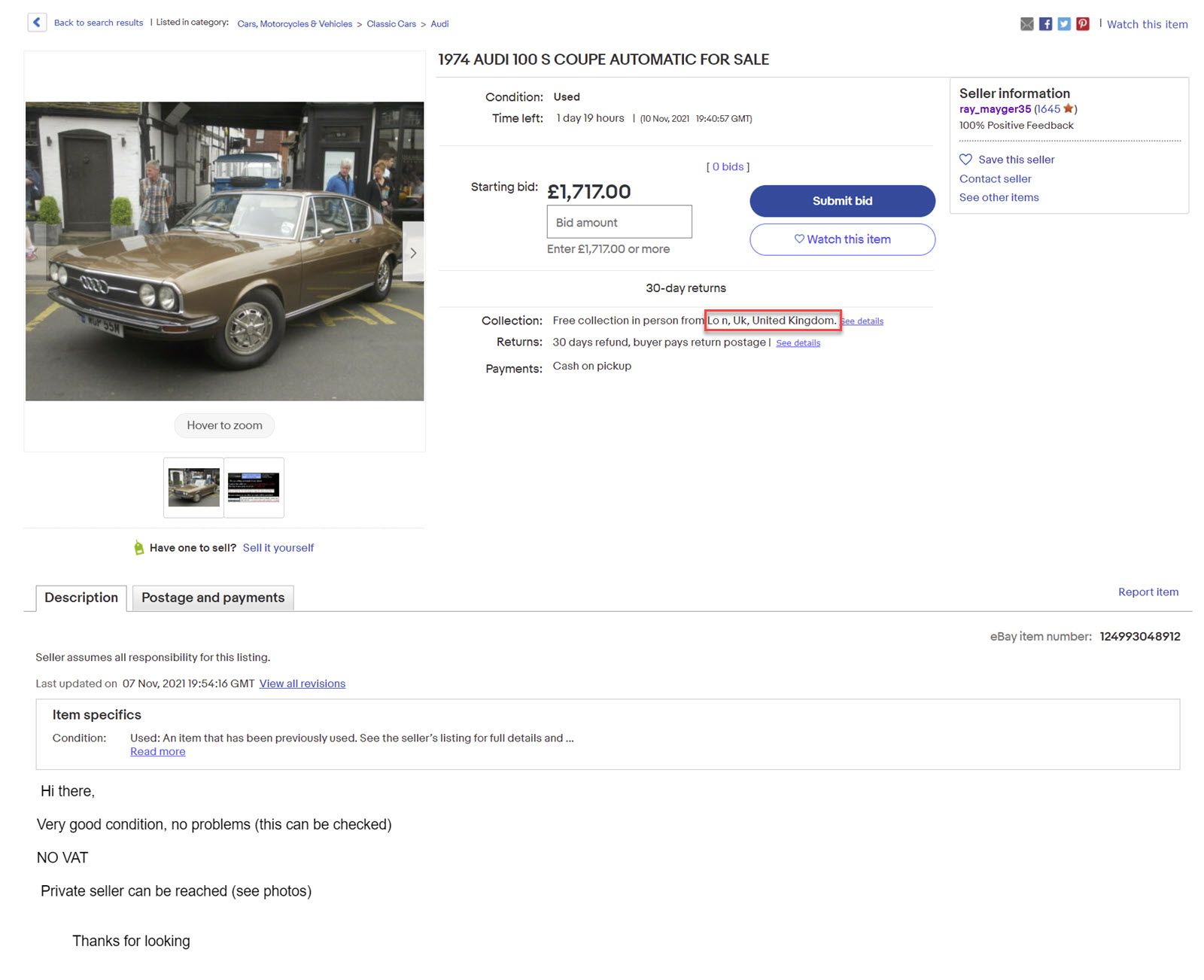
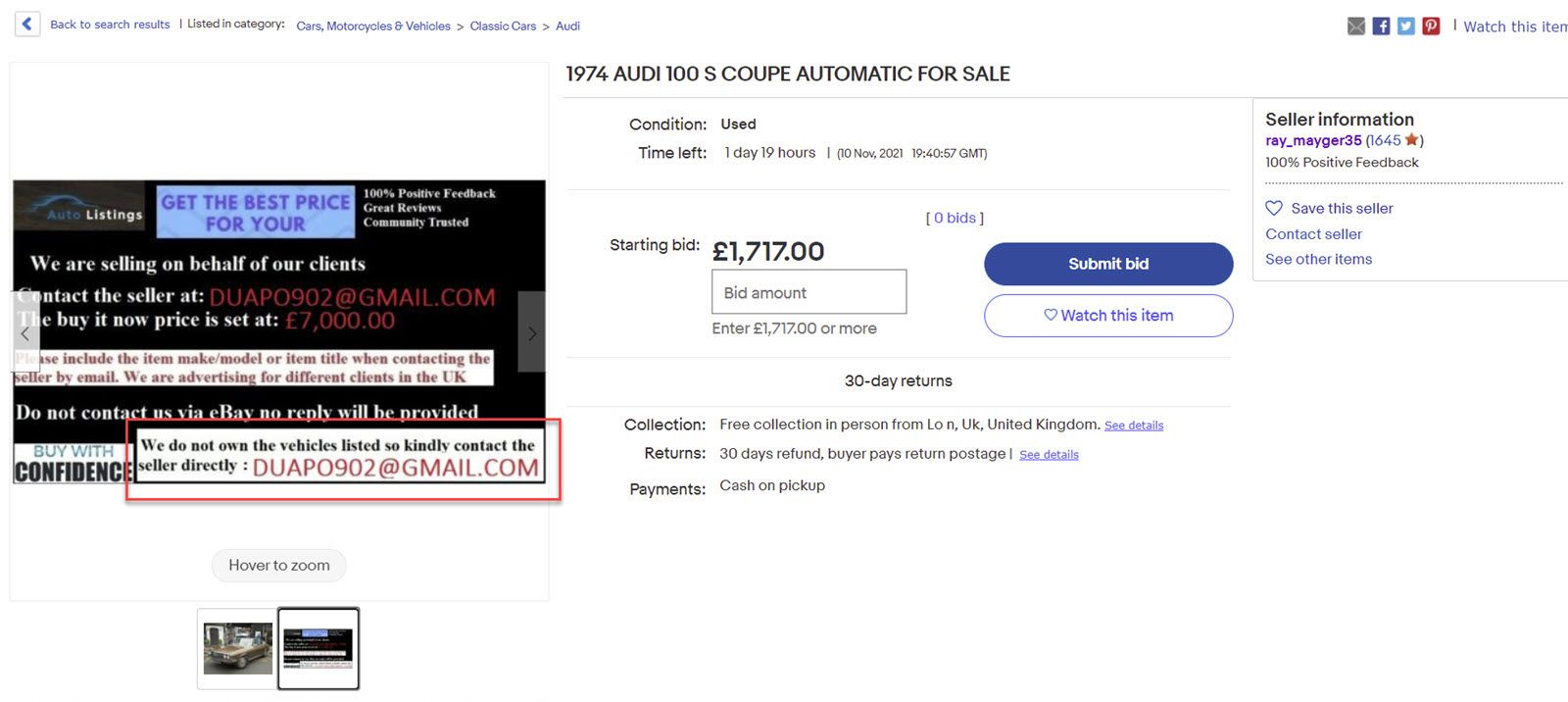
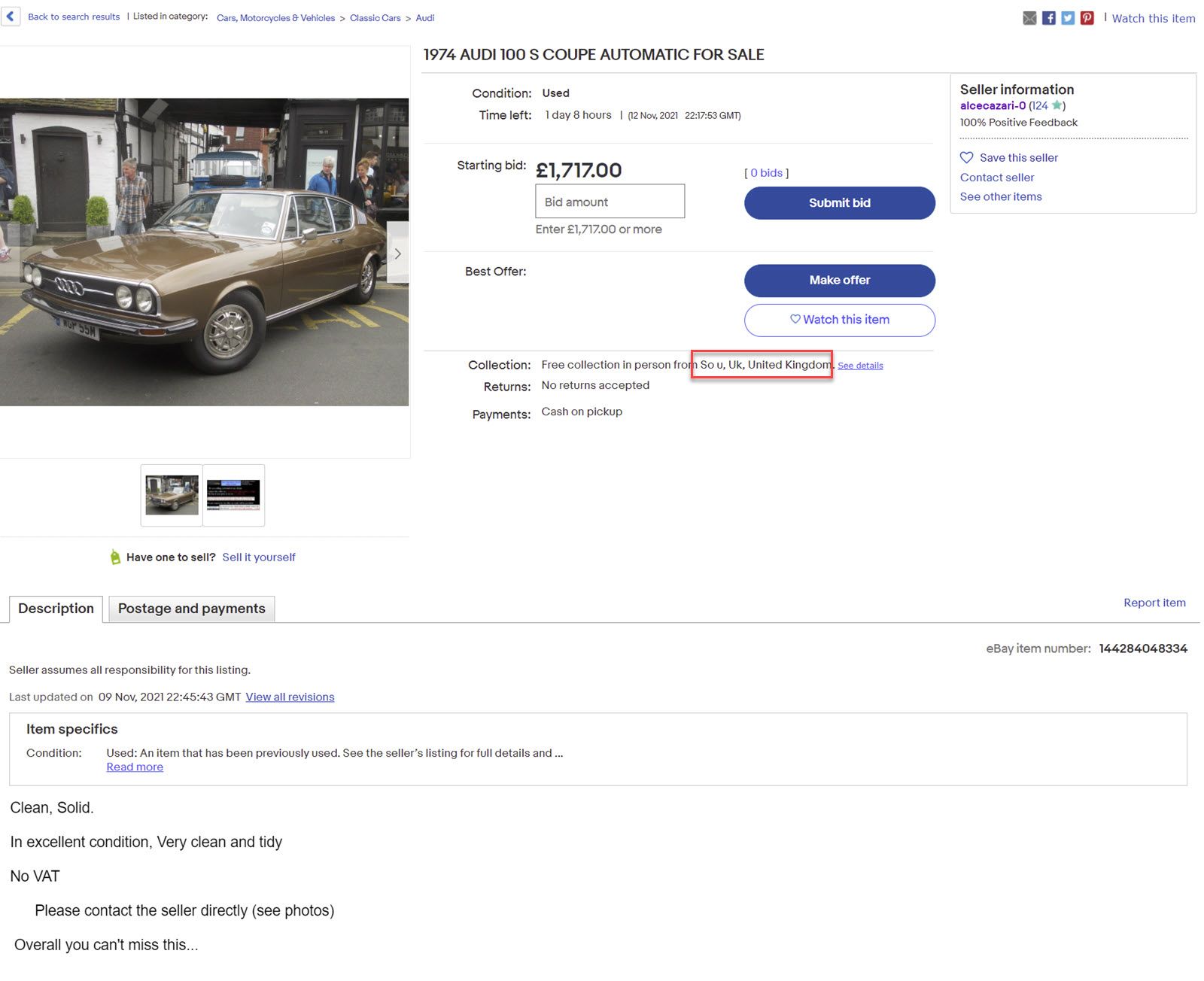
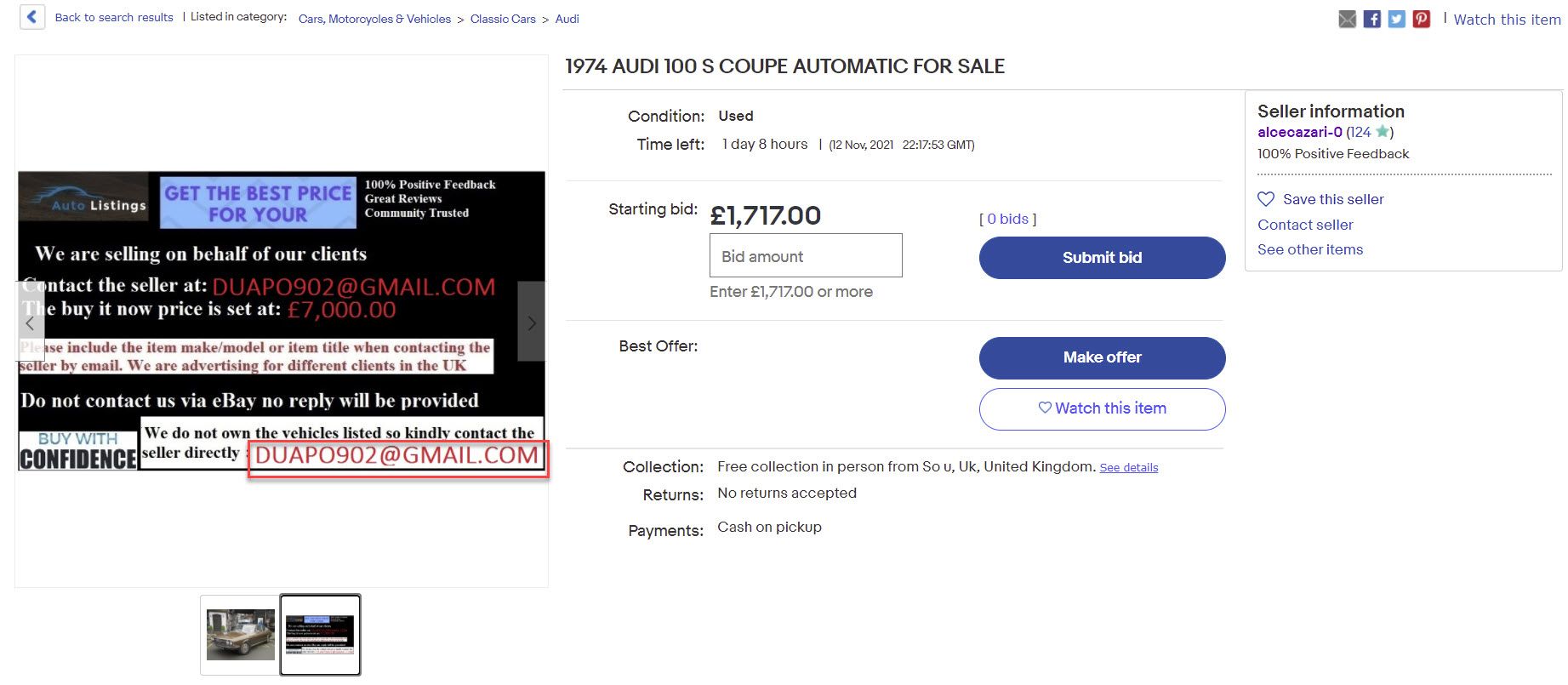
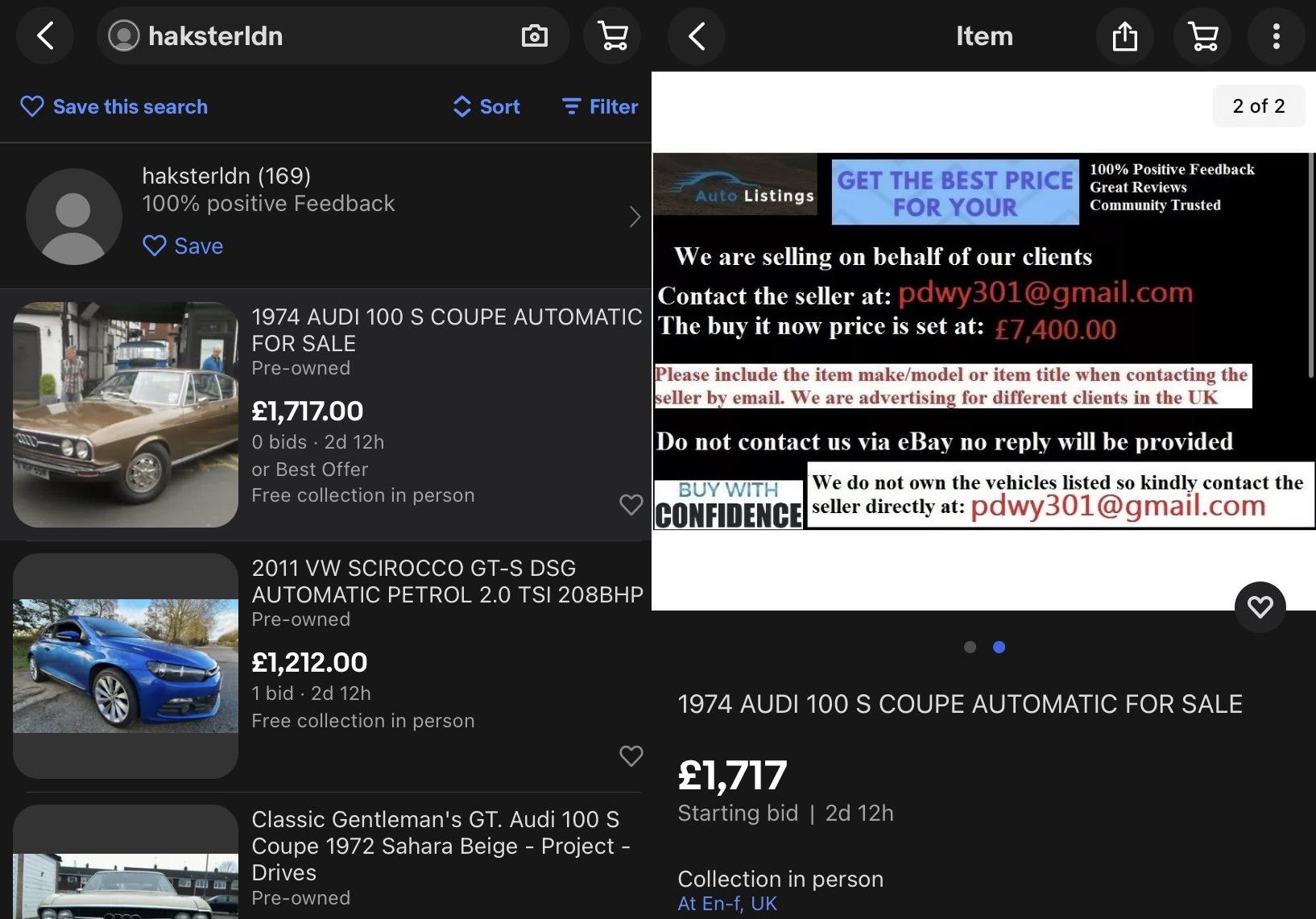
Common Red Flags
Digging deeper I discovered some more interesting commonalities. The compromised accounts I looked at that were being used for this scam all appear to have at least 1 legitimate advertisement for a car.
Are the scammers specifically targeting legitimate accounts that already have vehicles for sale in an effort not to raise red flags when they list more vehicles?
Real listing:
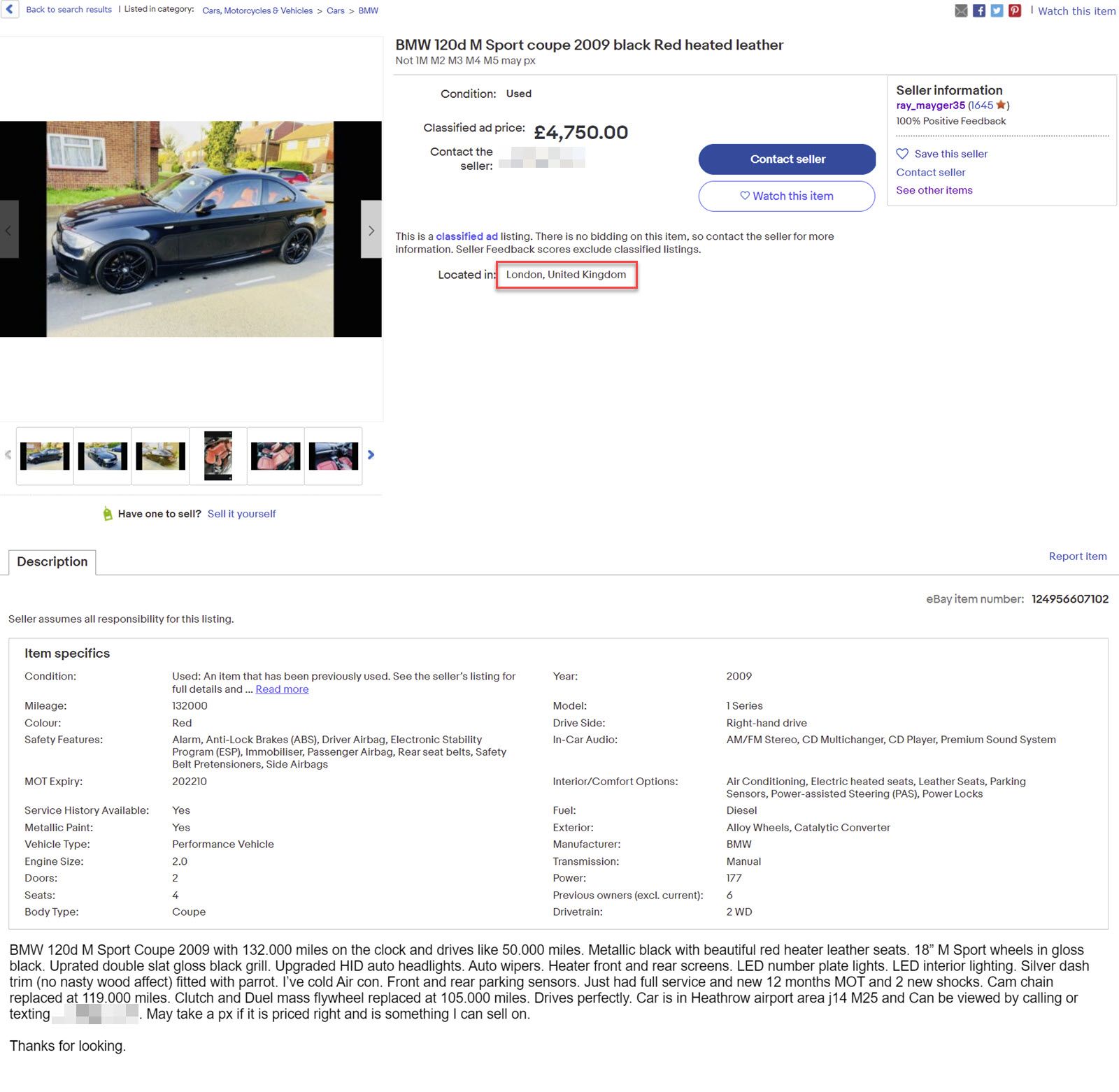
Fake listing on same account:
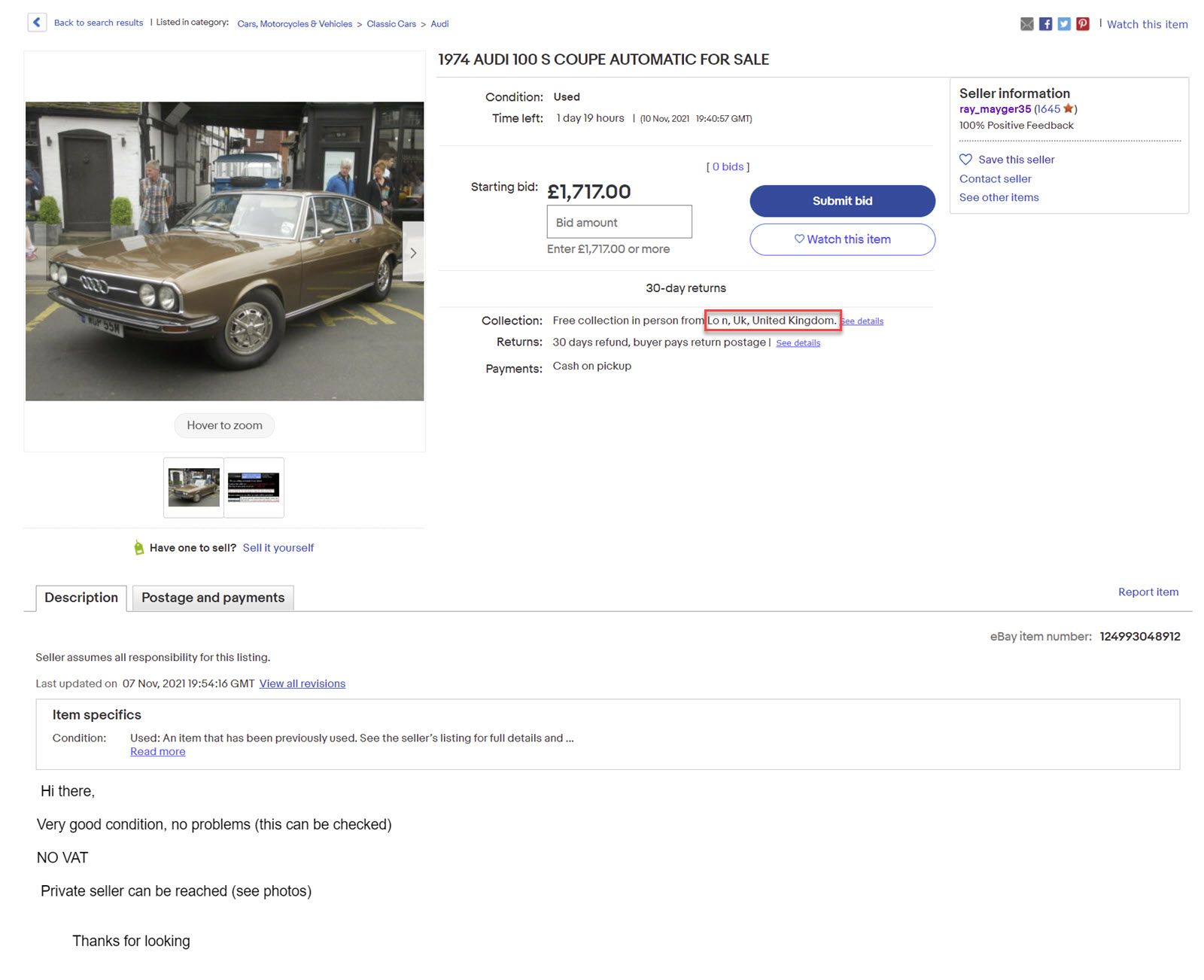
Real listing:

Fake listing on same account:
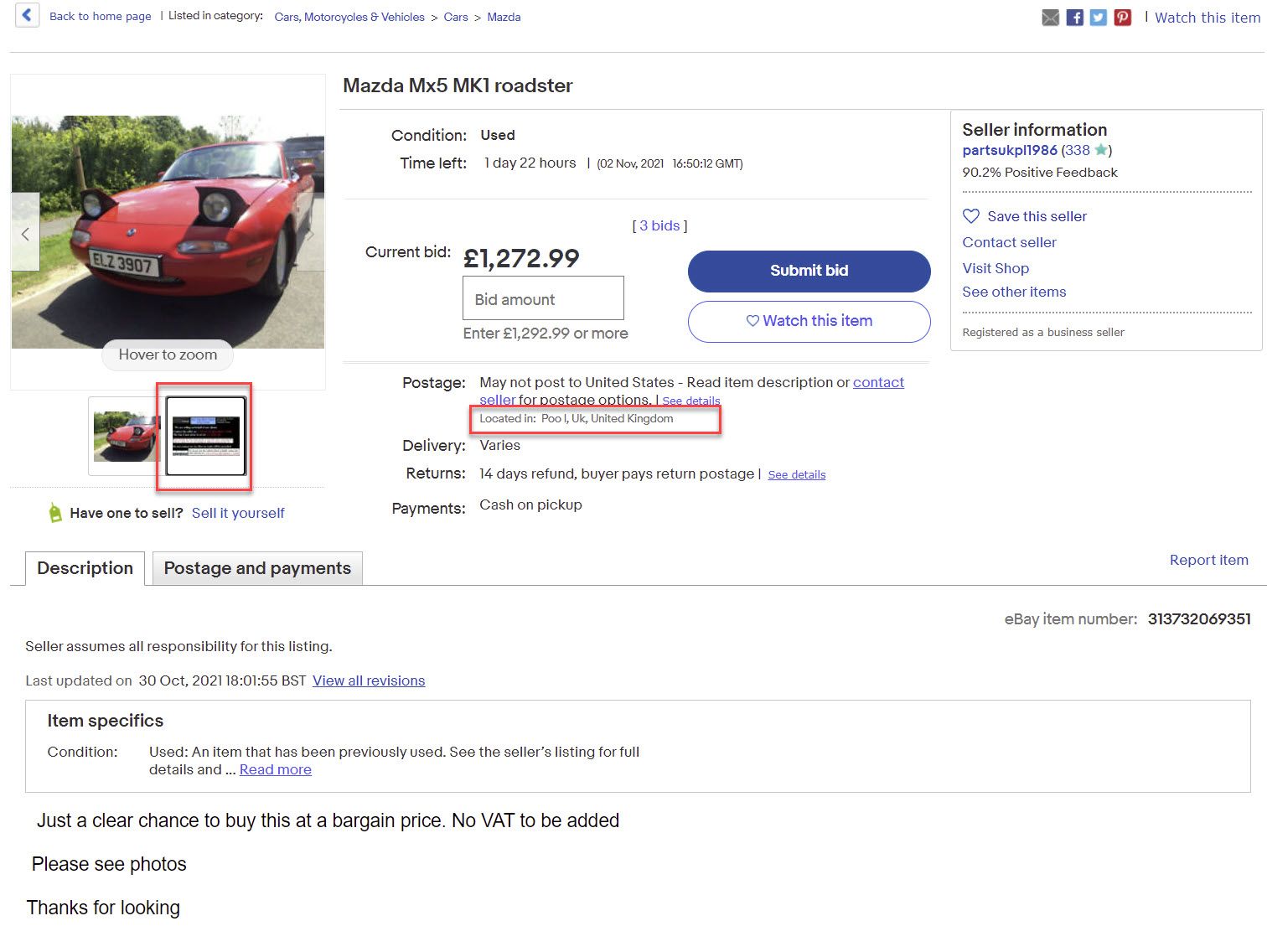
Real listing:
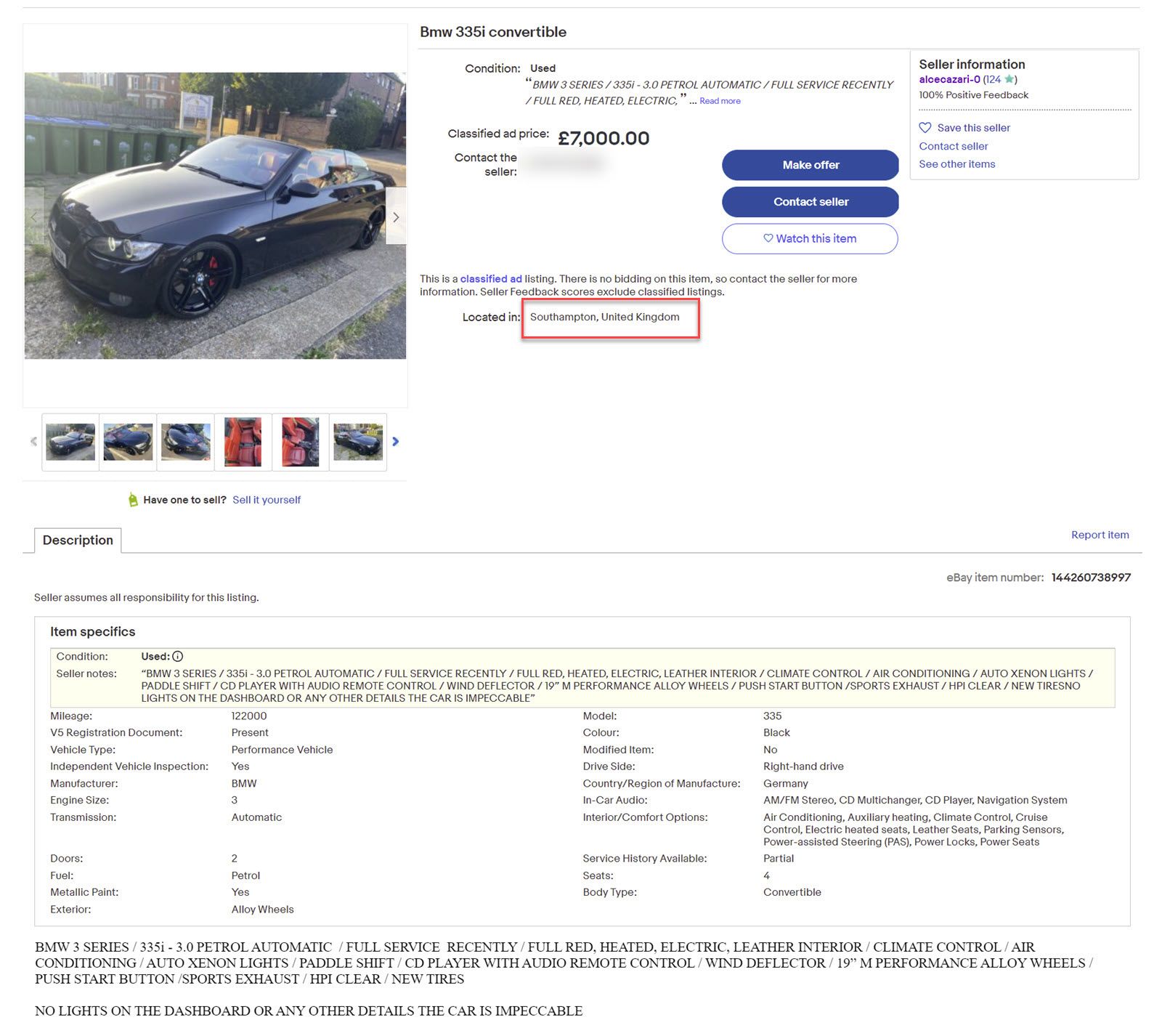
Fake listing on same account:
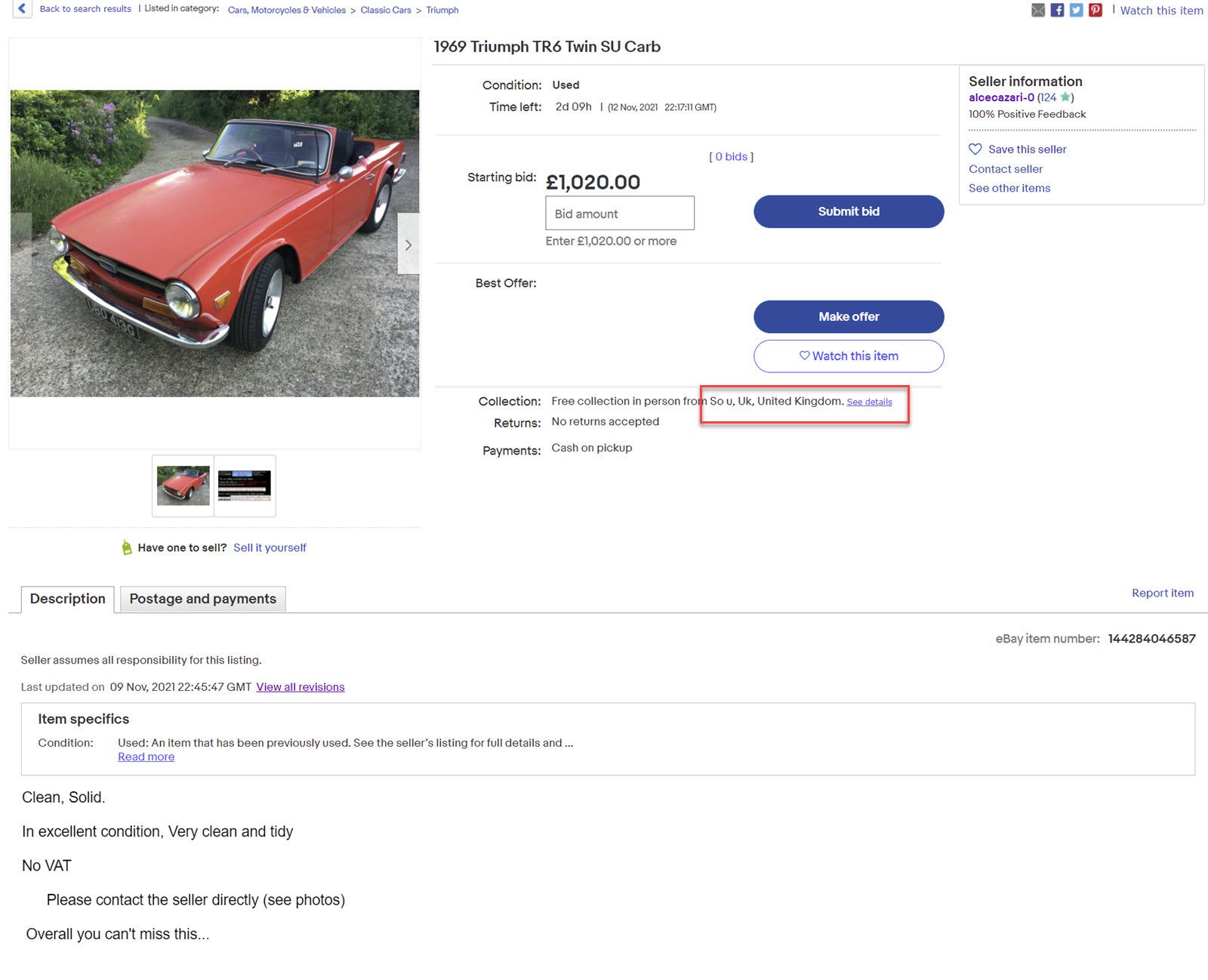
Also notice the locations in all of these examples - the real listings show the full name of a city and United Kingdom, the fake listings show a similar but manipulated city name with some letters removed and/or spaces added, then UK, then United Kingdom.
London - Lo n
Poole - Poo l
Southampton - So u
Placeholder Listings
Another interesting commonality revealed itself when I sorted listings by lowest price first - all of the compromised accounts showed what appear to be "placeholder" listings where the scammers create the listing using a gibberish title, no picture, and low starting price.

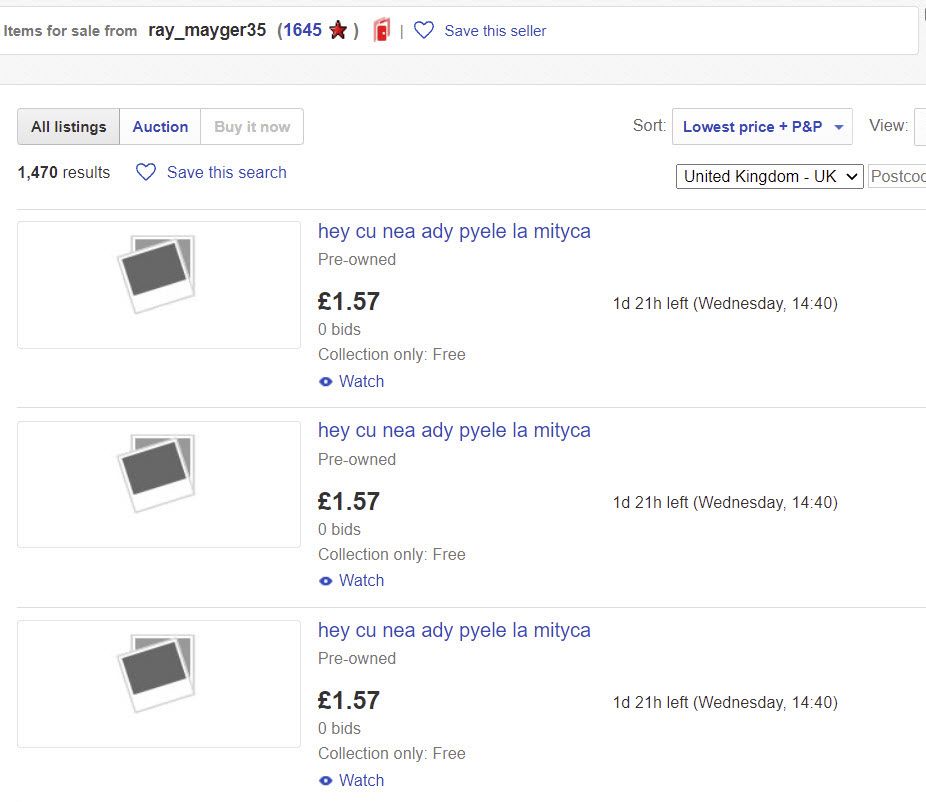

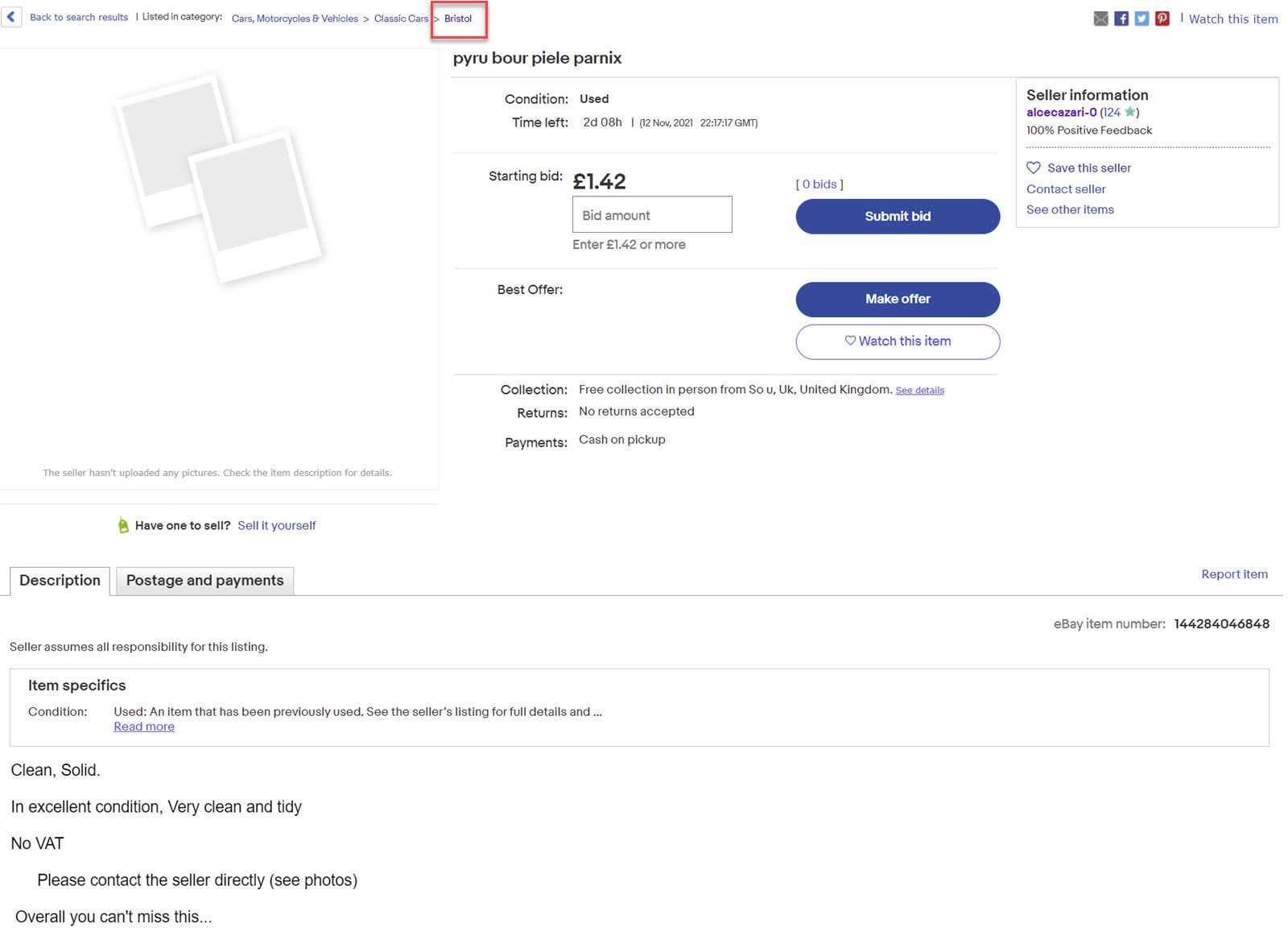
The original categories used appear to be more obscure car types, in these examples Bristol and Perodua. These categories show very few results compared to more popular makes like Audi. Perhaps eBay doesn't monitor obscure or smaller categories as closely?
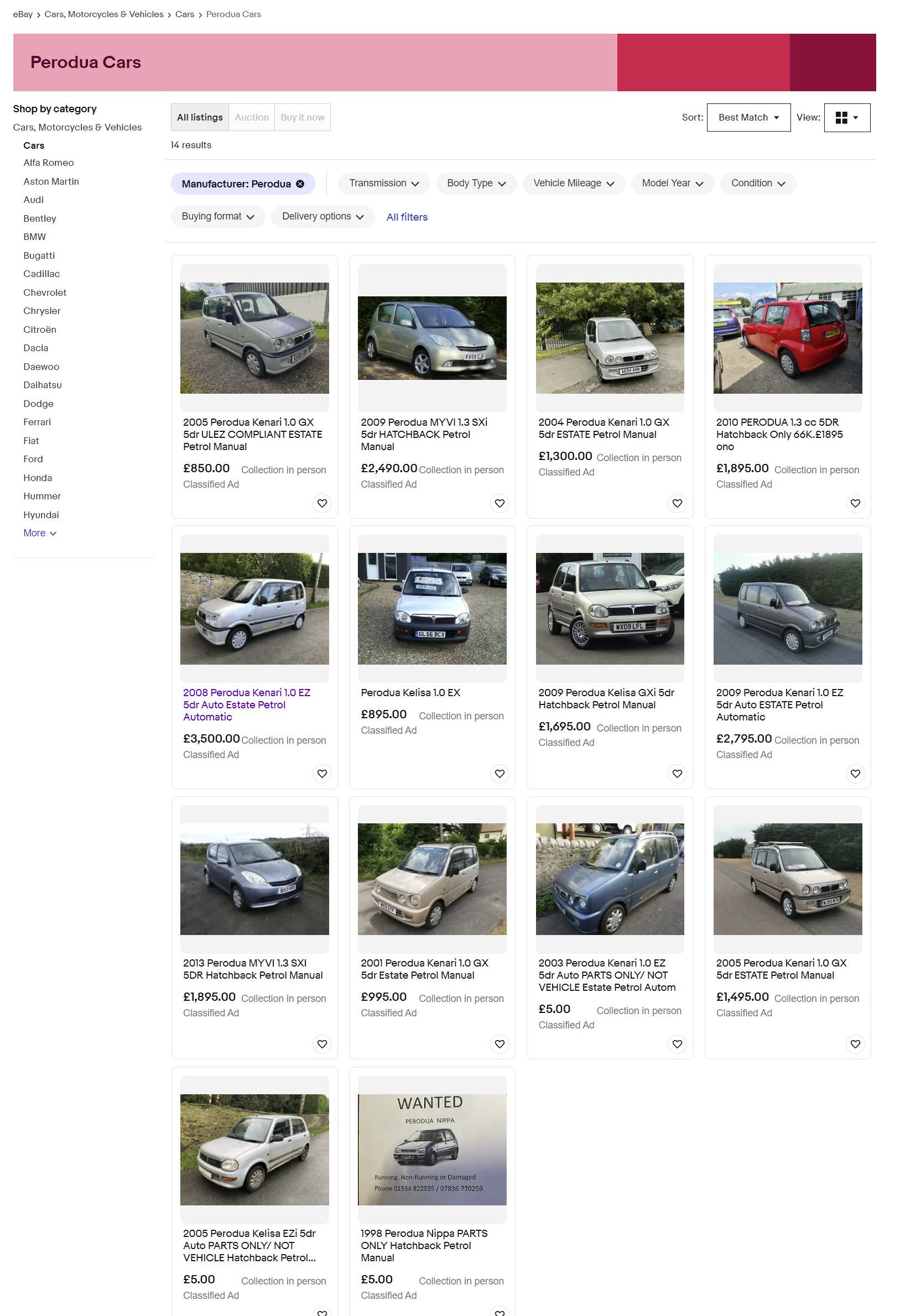

Based on observing these accounts as the scam unfolds, it appears that the scammers use automation or bulk uploads to create hundreds of placeholder listings at a time, then they revise the listings in batches, updating the title, picture, payment terms & price first and then doing a second revision to change the category.
The pattern is very obvious when viewing the revision history on any of the scam listings.
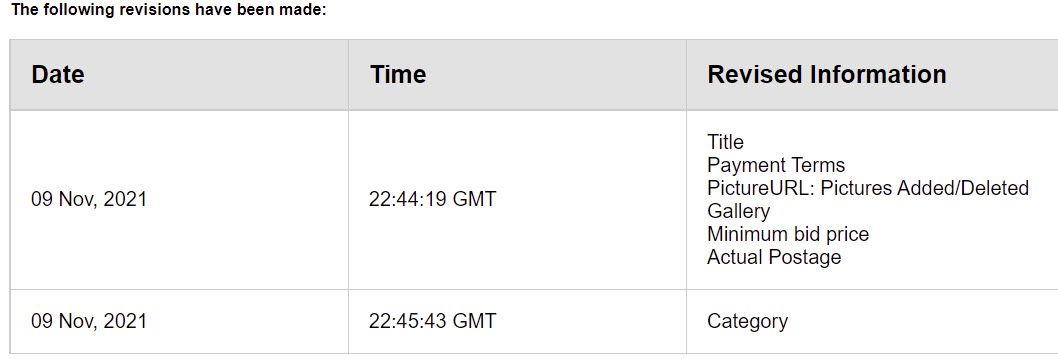
My educated guess is the scammers have discovered whatever automated security measures eBay may have in place may be looking at the original listing when created but subsequent revisions are likely to receive less scrutiny.
What can eBay do about it?
As in most situations where massive fraud and listing violations are brought to eBay's attention, their typical response is "please report the listing so our Trust & Safety teams can review it."
Their default position is there is simply no way they can proactively police listings on the platform, so their only option is to rely on armies of unpaid volunteer users to spend unfathomable amounts of time clicking the "report" link on each individual listing (while being served up all those ads stuffed onto the listing page!) - that is absolute BS coming from a 26 year old, multi-billion dollar tech company.
First of all, anyone who has ever reported any listing on eBay will tell you it is often a fruitless exercise in futility that does not result in any action being taken. But more importantly, why should users waste untold man-hours on this when eBay has both the ability and the responsibility to provide a secure and safe marketplace for their users?
As shown with that 1974 Audi, the scammers often use the exact same pictures and titles on every compromised account they take over - not to mention many aspects of the second image always being the same as well.
There is absolutely zero reason eBay couldn't train their magical AI/Machine Learning technology to recognize the images and common identifiers on these listings.
To take it a step further, the placeholder listings all use a common pattern both in the original format of the listings and the way they are then revised and updated with the scam info. Again, there is absolutely zero reason eBay couldn't use technology to track and identify listings fitting those patterns.
When it comes to eBay's lack of action on these scams, it isn't a technology problem - it's a motivation and accountability problem.
eBay has also come under increasing pressure from the Automotive Anti-Counterfeiting Council to do more to prohibit the sale of dangerous counterfeit airbags, showing that the problems in eBay Motors don't stop with the fake car listings.

eBay Motors/Parts & Accessories is supposedly the "next big thing" in eBay's vertical focus playbook. In order to attract those "high value buyers" Iannone wants, eBay is going to have to make the platform safe for them and for sellers of the high value products they want.
That isn't going to happen unless eBay gets serious about cleaning up the site so eBay Motors doesn't continue to be synonymous with counterfeits and scams.







